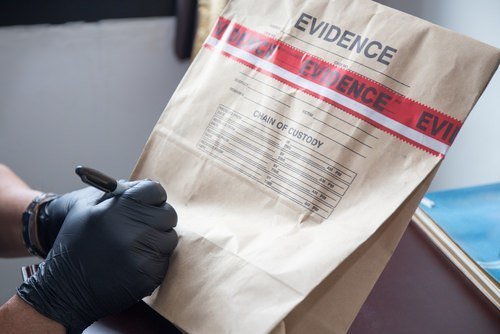
In State v. Cox, the WA Court of Appeals held that the trial court mistakenly excluded evidence pursuant to the Rape Shield Statute that the victim flirted with the defendant and sat on his lap at the party where the unlawful sexual contact occurred.
BACKGROUND FACTS
The incident occurred in the early morning hours at the complaining witness’s house after her birthday party. The complaining witness testified that after she fell asleep in her bed, she was awakened by the defendant digitally raping her. The State presented evidence that Mr. Cox’s DNA was found on the complaining witness’s undergarments.
Mr. Cox denied the accusation entirely and testified that the complaining witness was intoxicated and that he had rejected her advances. Nevertheless, he was charged and convicted of Rape in the Second Degree.
COURT’S ANALYSIS AND CONCLUSIONS
The Court of Appeals reasoned that the Rape Shield Statute does not apply to behavior that is contemporaneous with the alleged rape. Here, the victim flirted with the defendant and sat on his lap at the party. That evidence should not have been suppressed. In addition, the statute does not apply to evidence, which was offered to explain how the victim’s intoxication affected her behavior and memory of that night and that there may have been an innocent explanation for the DNA transfer.
“The excluded evidence in this case was not past behavior; it was contemporaneous with the alleged rape. Nor was it being introduced to show consent. And while it was being introduced to discredit the victim’s credibility, the focus was on her level of intoxication, not on allegations of promiscuity. Thus, application of the Rape Shield Statute in these circumstances was untenable and an abuse of discretion.” ~ WA Court of Appeals.
The Court also decided the trial court wrongfully suppressed evidence of the alleged victim’s behavior with the Defendant at the party:
“Evidence that the victim was highly intoxicated, acting in a manner that was uncharacteristically flirtatious, and sitting on Mr. Cox’s lap in a dress, was ‘highly relevant’ to his theory of the defense. The prejudicial value of this evidence, if any, was low.” ~ WA Court of Appeals.
Also, the Court of Appeals reasoned that the trial court erred by sustaining an objection to a hypothetical question that defense posed to the State’s DNA expert during cross-examination. Here, Mr. Cox tried to present expert testimony evidence that it was possible for his DNA to be transferred to the complaining witness’s underwear through innocent, non-sexual contact such as sitting on his lap. The Court of Appeals disagreed, and held that an expert witness may be cross-examined with hypotheticals yet unsupported by the evidence that go to the opponent’s theory of the case.
“The lap-sitting incident provides an explanation as to how Mr. Cox’s DNA might have been transferred to the complaining witness. The witness’s inability to recall this incident calls into question her ability to remember other events from that night. And her flirtatious behavior with Mr. Cox supports his version of events.” ~ WA Court of Appeals.
Next, the Court of Appeals reasoned the trial court’s exclusion of the Defendant’s reputation evidence on the particular character trait of sexual morality was wrong. “Contrary to the trial court’s position, “this type” of evidence is explicitly
admissible under ER 404(a)(1),” said the Court.
With that, the Court of Appeals concluded that the trial court’s errors mentioned above were not harmless. It reversed Mr. Cox’s conviction and remanded for a new trial.
Please contact my office if you, a friend or family member are charged with a Sex Offense or any other crime. Hiring an effective and competent defense attorney is the first and best step toward justice.

















